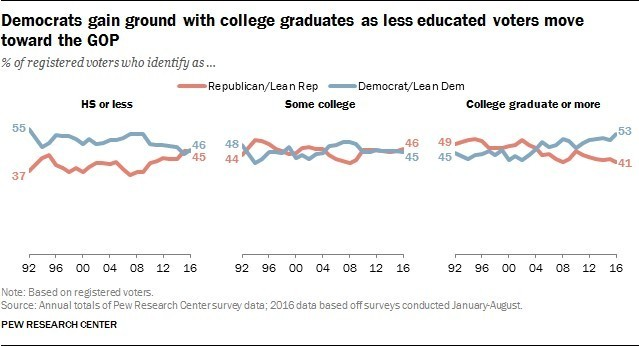SAJ-99
Well-known member
Last part first. How we got here:the obvious. Over the last 50yrs the US moved from aG and manufacturing economy to service-based. Service has differ tiers of knowledge and specialty(I.e waiter to drywaller, plumber, to engineer, accountant to lawyer, doctor). But a lot of service jobs require a college degree.1. No for profit colleges, period
2. No private student loans
3. Keep and possibly lower current cap on federal student loans, though tie they to CPI so they keep up with inflation.
Colleges have for decades been in a war to build the best resort to attract the best candidates, we need to stop providing them a stream of money so they make value ie $ the best way to attract future students.
In the 80’s the “government is bad” resulted in cuts of federal and state subsidies to colleges. Colleges responsed by raising prices. Those structural changes in payments led to the need to get more students with Grants and aid and a third-party student loan system exploded to take advantage. Then for-profit colleges followed the money. Good intention, bad result.
Now to your points
1) have to agree but some politicians get a lot money from them so doubt you can kill them. (The GAO found nearly a third of GI Bill tuition benefits went to for-profit schools in 2017.) at least hold them to rules on non-profit status for taxes.
2) not sure how that is possible without going back to the system from 60s and 70s. Plenty of people would hate that system too because “my taxes are funding some rich kids education”.
3)there was a bill earlier this year to address some limits and a recent R counter to exec action that has some limits on interest and amounts for graduate loans. Seems like a good place to start negotiations is we had a functioning legislative branch.
My summary view is consumers are as much to blame as anyone. We want cheap fast and good. The good part is unable to be measured until after the fact. Example, There are programs that claim a nursing degree in less than a year. That’s crazy. When we go to Hospital do you want to be seen by a Dr with 8+yrs post secondary education and training or a nurse practitioner who got the degree in a 20 month online course? Not to isolate healthcare because it’s all a mess, but it stands out.
Any result will require government regulation of the space or process.





